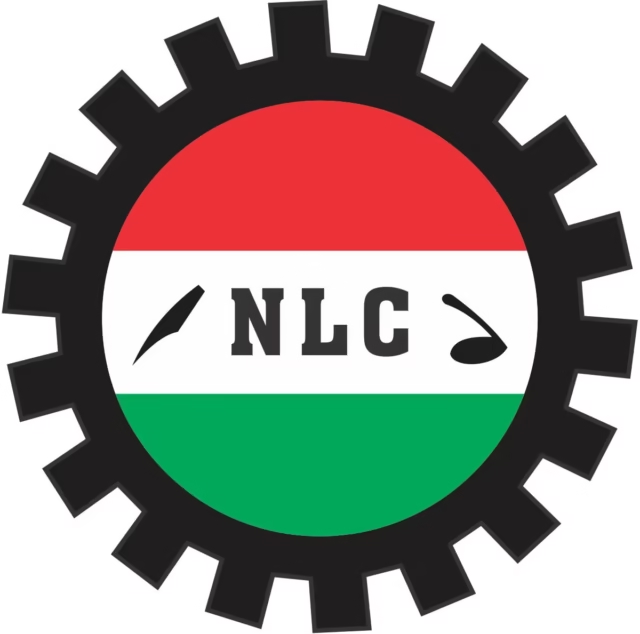NLC Backs Naira-for-Crude Deal for Dangote Refinery, Citing Path to Lower Fuel Prices
The Nigeria Labour Congress (NLC) has strongly urged the Federal Government to adopt a policy of selling crude oil to the Dangote Petroleum Refinery in the local currency, the Naira. The labour union posits that this strategic shift is crucial for significantly reducing the pump price of fuel, strengthening Nigeria’s domestic refining capacity, and ultimately easing the economic burden on citizens.
Join our WhatsApp community
This appeal was prominently made by the Lagos State NLC Chairperson, Funmi Sesi, during an official tour of the expansive Dangote Petroleum Refinery and Fertilizer Ltd. complex on Tuesday, attended by members of the Labour Writers Association of Nigeria (LAWAN) and other NLC officials.

Sesi articulated the union’s stance, questioning the current arrangement where the refinery is compelled to either import crude oil or purchase it from domestic sources using US dollars.
“This country has crude oil in abundance. Why is Dangote still importing crude or paying in hard currency for locally produced crude?” Sesi queried. She argued that this practice directly undermines the primary benefit Nigerians expected from the refinery: affordable petroleum products. “If the government truly wants to lower fuel prices and support local refining, it must sell crude oil to Dangote in Naira,” she asserted.
According to the NLC, sourcing this essential feedstock in the local currency would drastically cut down the refinery’s operational expenditure, a saving that could and should be passed on to the consumers, leading to a sustainable decrease in fuel prices nationwide.
Join our WhatsApp community
Praise for a “Transformative National Asset”
Beyond the call for a new pricing model, the NLC leadership heaped praise on Dangote Ltd. for what they described as a “transformative national asset.” Sesi commended the sheer scale and strategic importance of the investment, noting its measurable impact on bridging Nigeria’s chronic fuel supply gap, creating substantial employment opportunities, and bolstering the nation’s overall industrial capacity.
Following the contentious removal of petrol subsidies in 2023, which led to a sharp and painful increase in the cost of Premium Motor Spirit (PMS), the NLC noted that the entry of the Dangote refinery into the market has played a key role in stabilizing prices.
Sesi remarked that Dangote’s operations have already contributed to a reduction in the prices of PMS and other refined products like diesel, showcasing effective private sector leadership in a critical industry.
“With a 650,000-barrel daily capacity, this refinery can serve Nigeria and West Africa,” she said, also noting the impressive sight of large vessels exporting fertilizers, a testament to the facility’s multifaceted economic contribution.

The NLC also lauded the refinery’s commitment to producing high-quality, Euro-5 compliant fuel, which has significantly lower Sulphur content. This aligns with global environmental standards and enhances the reputation of Nigerian-made products on the international market.
Dangote’s Strategy for Energy Security and Distribution
Responding to the commendations, Devakumar Edwin, Vice President for Oil and Gas at Dangote Industries, reiterated the company’s core mission to permanently address Nigeria’s long-standing dependence on imported refined products.
He stated that the refinery is laying the foundation for a sustainable and competitive refining industry that will yield immense benefits for the national economy.
In a significant announcement, Edwin revealed plans to deploy a fleet of 4,000 Compressed Natural Gas (CNG)-powered trucks to handle the nationwide distribution of its petroleum products. This forward-thinking initiative is designed to tackle one of the major components of final pump prices: logistics and transportation costs.
“The deployment of 4,000 CNG-powered trucks will help pass down domestic refining benefits and lower product prices to consumers,” Edwin explained. He clarified that the objective is to enhance distribution efficiency and not to displace existing transport operators.
The use of CNG is a dual-pronged strategy: it is significantly cheaper to run than diesel-powered trucks and is more environmentally friendly, thus reducing the carbon footprint of the distribution network. This move aims to ensure that the cost advantages of domestic refining are fully realized by the end consumer across the country.
The Economic Policy Conundrum
The NLC’s push brings a critical policy debate to the forefront. In April, the Federal Government had indicated its commitment to a “Crude and Refined Product Sales in Naira” initiative, acknowledging its potential to alleviate pressure on Nigeria’s foreign exchange (forex) reserves and bolster long-term energy security. However, this was contrasted by reports in March suggesting that the initiative had been halted.

This policy uncertainty highlights a major economic dilemma for the government. Nigeria’s economy is heavily reliant on the US dollars earned from crude oil sales, which fund the national budget, service foreign debt, and are used by the Central Bank to defend the Naira. Selling crude to Dangote in Naira would mean a direct reduction in the inflow of these vital dollars.
Join our WhatsApp community
The government must therefore weigh the macroeconomic imperative of securing forex against the clear socio-economic benefits of lower domestic fuel prices, which would curb inflation and reduce hardship for millions of Nigerians. The outcome of this debate will be a defining factor in Nigeria’s quest for energy independence and economic stability.
Join Our Social Media Channels:
WhatsApp: NaijaEyes
Facebook: NaijaEyes
Twitter: NaijaEyes
Instagram: NaijaEyes
TikTok: NaijaEyes





